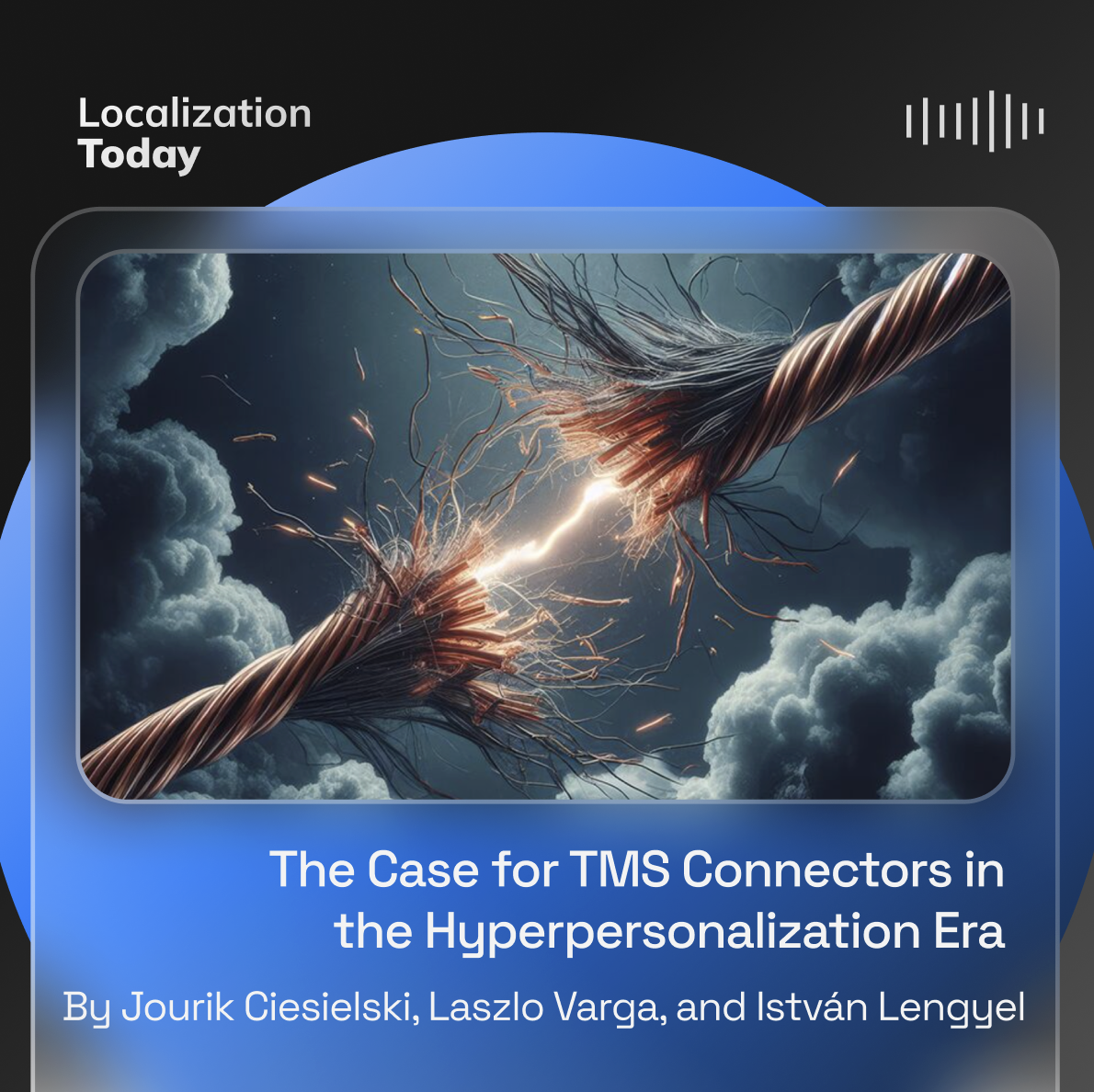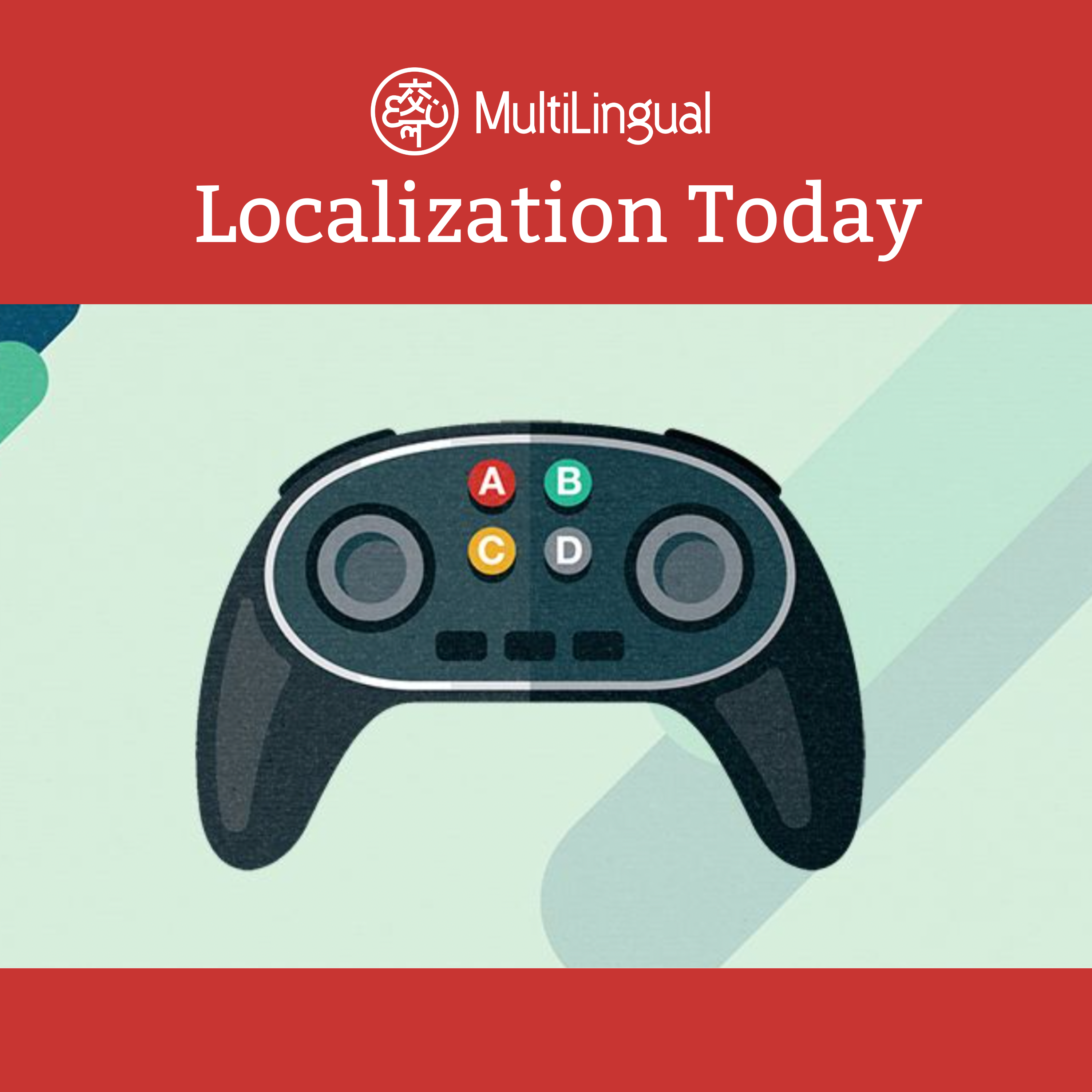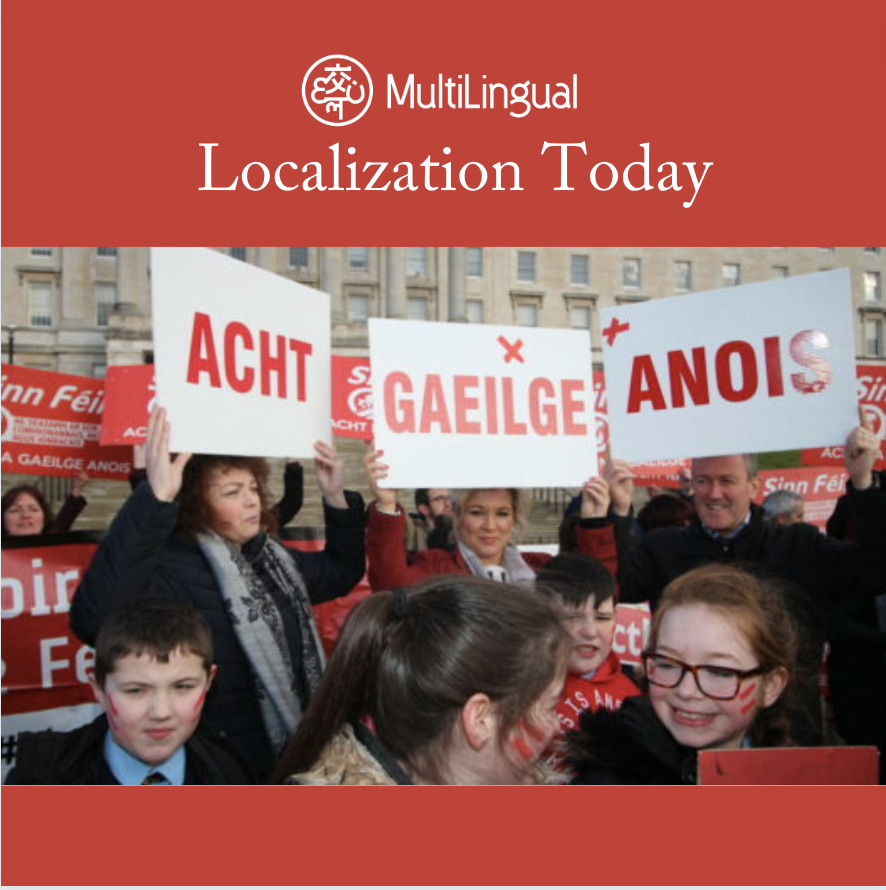Episode Transcript
[00:00:06] Speaker A: This is localization Today, a podcast from multilingual media covering the most relevant daily news in the language industry.
[00:00:16] Speaker B: How to turn your LSP into a.
[00:00:18] Speaker C: Regenerative, sustainable business by Laura Gorey sustainability.
[00:00:25] Speaker D: Is one of the most pressing challenges of our time.
[00:00:29] Speaker B: Although many features of the language industry.
[00:00:31] Speaker D: Are perfectly amenable to sustainable development, strong digitalization, the female majority of the linguist population, and its international footprint, there are undoubtedly quite a few gaps to overcome.
[00:00:44] Speaker B: Think price dumping, AI disruption, commoditization of.
[00:00:48] Speaker D: A human provided service, and market concentration, to name a few.
[00:00:53] Speaker B: The language industry needs a new way.
[00:00:55] Speaker D: Of doing business that prioritizes sustainability to address these issues.
And in fact, there is an effective, innovative approach that can offer a beacon of hope, the benefit corporation model, which integrates business success with positive social and environmental impact.
[00:01:14] Speaker C: What is a benefit corporation? The terms benefit Corporation and B Corp.
[00:01:18] Speaker D: Refer to a legal framework and certification, respectively, that define a new way of conceiving and pursuing business.
[00:01:26] Speaker B: It is a hybrid business model halfway.
[00:01:29] Speaker D: Between for profit and nonprofit with a dual purpose. In addition to revenue, benefit corporations commit themselves by law to pursuing positive social and environmental impact.
They are visionary, triple bottom line businesses that have the three P's, people, planet, and profit as the backbone of their.
[00:01:49] Speaker B: Corporate strategy and business plan. Benefit corporations integrate the UNS 2030 Sustainable.
[00:01:55] Speaker D: Development goals into their mission and sign a declaration of interdependence.
[00:02:01] Speaker B: They are committed to the highest standards.
[00:02:03] Speaker D: Of performance in environmental, social, and governance aspects and aim to make business better for all stakeholders, workers, shareholders, consumers, and the general community at large.
[00:02:16] Speaker B: In essence, benefit corporations generate value for.
[00:02:19] Speaker D: The world that outweighs the resources they use to run their business.
Operating as regenerative businesses means boldly giving back more to society and the planet.
[00:02:29] Speaker C: Than they take from them.
[00:02:31] Speaker B: Joining the benefit corporation movement means taking.
[00:02:34] Speaker D: On a new perspective and measuring the value of your business according to its ability to care for the environment and.
[00:02:40] Speaker B: Respond to the great challenges of humanity.
[00:02:43] Speaker C: Advantages of the benefit corporation model becoming.
[00:02:46] Speaker D: A benefit corporation brings many advantages.
[00:02:50] Speaker C: Here are just a few of them. Resiliency benefit corporations tend to perform better.
[00:02:56] Speaker D: In the long term.
Studies show that corporate sustainability is a driver for sound, healthy growth.
Sustainability positively impacts the bottom line, generating savings and growth.
[00:03:09] Speaker C: Trustworthy brand identity in an era of.
[00:03:12] Speaker D: Greenwashing and misleading labels, benefit corporations help consumers, users, and clients identify trustworthy companies.
[00:03:21] Speaker B: The certification process helps ensure a sound reputational standing.
[00:03:26] Speaker C: Networking and strategic partnerships by joining the.
[00:03:29] Speaker D: Ranks of like minded companies like Patagonia, Danone, and Wetransfer, you develop strategic business.
[00:03:36] Speaker B: Partnerships that stem from being part of.
[00:03:38] Speaker D: The benefit corporation tribe and create opportunities for shared growth and innovation.
[00:03:43] Speaker C: Attracting capital investors are aware of the.
[00:03:46] Speaker D: Market potential for socially responsible investing, what is known as impact financing, which makes.
[00:03:52] Speaker B: Businesses like benefit corporations very much attractive in their eyes.
[00:03:57] Speaker C: Workforce quality benefit corporations are mission driven.
[00:04:01] Speaker D: Companies that focus on the well being of people, so they foster employee job satisfaction, succeed in engaging their workforce and are able to lower employee turnover and.
[00:04:10] Speaker C: Attract top tier talent.
[00:04:13] Speaker B: Way too globals path to benefit corporation Way too global story is a testament.
[00:04:19] Speaker D: To the transformative power of embracing the B Corp model as well as an inspiring busy ness case.
Since its inception in 2017, the small italian based language service provider LSP has extended its vision beyond profit by striving to generate a positive impact on society and to foster long term sustainability.
[00:04:41] Speaker B: Six years ago, the company made the.
[00:04:43] Speaker D: Decision to rank among the pioneering early adopters of the benefit corporation model for doing good through business business well before sustainability became a mainstream buzzword and, as is unfortunately the case, a tool for greenwashing.
[00:04:57] Speaker C: The importance of measuring and reporting one.
[00:05:00] Speaker D: Of the first steps in wei two globals journey to becoming a regenerative business involved starting to measure its impact on the world, what is called its sustainable footprint.
According to the company vision and in line with benefit corporations noble purpose sustainability is not merely a story to tell, but a mission to live.
Thats why it is not so much a question of storytelling, but of story doing.
Socially responsible companies first do then verify and measure by integrating ESG based key performance indicators KPI's into their business plans.
[00:05:37] Speaker B: And only at the end do they tell.
Drafting an annual impact evaluation report to.
[00:05:42] Speaker D: Publicly trace ESG performance toward all stakeholders is among the major requirements for qualifying.
[00:05:48] Speaker B: As a benefit corporation.
[00:05:50] Speaker D: As way two globals leader, I wanted to improve and scale up our impact evaluation.
[00:05:56] Speaker B: So in 2020, I started attending an.
[00:05:59] Speaker D: Executive education course to develop a skill set in integrated thinking, value creation, accountable strategic leadership, civil economy and non financial disclosure.
[00:06:10] Speaker B: The program ended with a final examination.
[00:06:12] Speaker D: Which let me enroll in the italian register of Certified chief evaluation officers and draft the companys first integrated report embedding the original impact.
[00:06:22] Speaker B: As a small company, we were not.
[00:06:24] Speaker D: Obliged by law to draw up a proper sustainability report, yet we wanted to voluntarily fulfill this obligation.
It was considered a driver of change as well as an important strategic development tool to continue measuring and benchmarking with.
[00:06:39] Speaker B: Much larger scale models such as multinationals and giant organizations.
[00:06:44] Speaker C: Initiatives driving sustainable change way too global.
[00:06:49] Speaker B: Has five major sustainability projects.
Green translations as the first decarbonized translation.
[00:06:56] Speaker D: Cervice in the world converging green practices and building a sustainable supply chain. We became a climate positive, calm, painty.
[00:07:03] Speaker B: By reducing and offsetting more carbon dioxide than we generate.
[00:07:07] Speaker C: Made in B Italy this editorial project.
[00:07:11] Speaker D: And roadshow spread and reached Expo Dubai to advocate for the innovative all italian.
[00:07:16] Speaker B: Business model of benefit corporations throughout the world.
[00:07:20] Speaker C: Language Industry 4.0 this initiative promotes the.
[00:07:24] Speaker D: Digital transition as a lever for teaching new skills to mothers re entering the workforce and for assisting people left behind.
[00:07:30] Speaker C: By the digital divide Wei two academy.
[00:07:34] Speaker B: An open education project for the training.
[00:07:36] Speaker D: And professional retraining of the translator community, Wei two academy takes action to remedy pandemic caused unemployment and to address the.
[00:07:44] Speaker B: Digital divide which prevents younger people from finding jobs anywhere.
[00:07:49] Speaker C: Office a new paradigm of fluid work.
[00:07:52] Speaker D: Organization focused on the key corporate principles of flexibility, work life balance, parenting support.
[00:07:58] Speaker C: Employee benefits and diversity and inclusion, shared value and outcomes.
[00:08:05] Speaker B: The benefit corporation model has accelerated and.
[00:08:08] Speaker D: Enhanced our processes, business development, performance and.
[00:08:12] Speaker C: Growth with a remarkable reduction and offset.
[00:08:15] Speaker D: Of 100% of greenhouse gas emissions. Along with a year on year decrease in energy use of approximately 30%, we source 100% of our energy from renewable sources.
Additionally, we employ a large number of women who need to work from home due to childcare, as well as young people living in disadvantaged areas.
At the same time, we have seen.
[00:08:39] Speaker B: Continuous improvement in all KPI's, all while still a startup. The weight two global case study shows.
[00:08:46] Speaker D: What impressive results a regenerative business can.
[00:08:49] Speaker B: Yield while creating value to the benefit of all stakeholders. Despite our small size, our commitment to.
[00:08:55] Speaker D: Sustainability and transparent governance resulted in our ranking among a select group of 30 finalists, mainly large companies and multinationals, in the 2023 oscars for Sustainability Reporting, a prestigious initiative promoted by the Italian Public Relations Federation, the Italian Stock Exchange, and Baconi University.
We placed second in the benefit corporations category, further emphasizing the impact of small businesses in driving sustainable change.
[00:09:25] Speaker B: Consider becoming a benefit corporation.
Sustainable transformation is not a fad or.
[00:09:31] Speaker D: Hype, but rather a civic duty. What benefit corporations call the duty of care?
Reporting on ones ESG impact transparently and effectively is the only way to spread responsible corporate communication that can create trust, credibility and hope.
[00:09:48] Speaker B: It communicates ESG commitments and results and.
[00:09:51] Speaker D: Inspires virtuous habits for transforming the world into a better place for everyone.
[00:09:56] Speaker B: Moreover, recently approved EU regulations like the.
[00:10:00] Speaker D: Corporate Sustainability Reporting directive, corporate sustainability due diligence directive, and european sustainability reporting standards will soon introduce strict rules for sustainability reporting by european companies.
[00:10:16] Speaker B: This new statutory framework will make the.
[00:10:19] Speaker D: Three pillars of a benefit corporation binding, namely transparent sustainability governance, commitment to social.
[00:10:25] Speaker B: And environmental causes, and annual preparation of an impact assessment.
[00:10:31] Speaker D: Aligning early with the requests of investors.
[00:10:34] Speaker B: Banks and customers regarding ESG assessment becomes a competitive advantage. Benefit corporations bring about a new paradigm.
[00:10:42] Speaker D: Of sustainable business for responding to the dire need to transform the economy into.
[00:10:46] Speaker B: A more equitable and sustainable system.
Embracing sustainability, leading the change and acting.
[00:10:54] Speaker D: As an inspiration should be imperative for all businesses if we want to leave future generations a better world than the one we inherited.
[00:11:02] Speaker B: The pandemic has shown us that we.
[00:11:04] Speaker D: Are all interconnected, citizens, businesses, public administration.
[00:11:09] Speaker C: No one is excluded.
[00:11:10] Speaker B: Therefore, the time to embark on this.
[00:11:13] Speaker D: Multilateral, transformative journey is now, for no company should see itself as an island in the interconnected world we inhabit. Nor can we wait for someone else.
[00:11:22] Speaker B: To rescue our planet.
[00:11:24] Speaker D: No one could convey the concept better than explorer and environmentalist Robert Swann, who maintained that the greatest threat to our.
[00:11:31] Speaker B: Planet is the belief that someone else will save it.
[00:11:36] Speaker C: This article was written by Laura Gorey.
[00:11:39] Speaker D: She founded Way too Global in 2017 after 30 years at the helm of.
[00:11:44] Speaker C: Transcetic group Way two Global is the.
[00:11:47] Speaker D: First localization company in the world set up as a benefit corporation.
[00:11:52] Speaker B: Originally published in multilingual magazine, issue 226, March 20, 2024.
[00:12:00] Speaker A: Thank you for listening to localization today. To subscribe to multilingual magazine, go to multilingual.com.
Subscribe.


